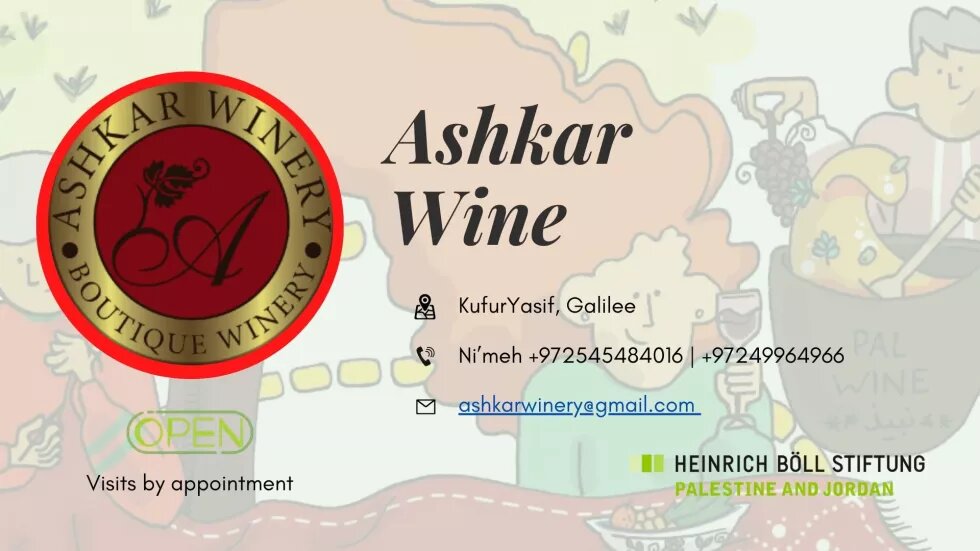Facebook: Ashkar winery Email: ashkarwinery@gmail.com
Website: www.ashkarwinery.com

The Ashkar family, originally from the village of Iqrith, now lives in Kufur Yasif in the Galilee. The story of Iqrith, a Palestinian Christian village in northern Galilee, is a story of resistance and identity. The inhabitants were forced to leave their village in 1948 and were transferred by buses to nearby villages. The area was declared a military zone and the villagers were forbidden from returning. The people of Iqrit appealed their case before Israel’s Supreme Court, which ruled in July 1951 that their evacuation was illegal and that they must be permitted to return. However, on Christmas Eve of that year, Israeli soldiers demolished the village, leaving only the church and the cemetery intact, which are still used by the people of Iqrith today.
In recent times, the grandchildren of those expelled have been returning to the village, holding an annual youth camp and a group of youth are now living there permanently in an outpost, in an effort to claim their right of return and rebuild their village. Members of Ashkar family, young and old, speak passionately about Iqrith and even though they are well established in their respective fields and careers, they all commit to spending time, energy, and money on maintaining the village as well as being physically present there at least once a month.
In an effort to preserve the local traditions of their ancestors, the family developed an interest in winemaking. Their project started on a very small scale with the purpose of producing wine to meet the needs of the family and their friends, but production has grown from 3,000 bottles in the first few years to 12,000 bottles per year today.
Ni’meh Ashkar is a networking professional and has established contacts with local restaurants that offer the Ashkar wine products as a speciality wine in Nazareth, Akka, and Haifa. He is also aiming to establish agreements with restaurants in Ramallah, Bethlehem, and Jerusalem, where Ashkar wine’s unique story can be told and where Iqrit’s activism can inspire refugees and internally displaced people who lost their homes and villages.